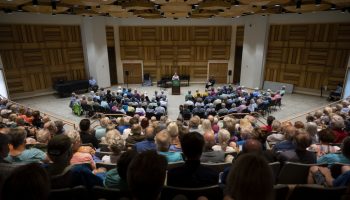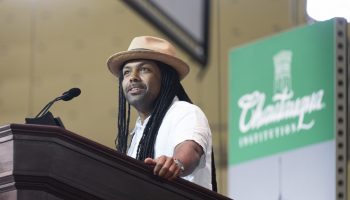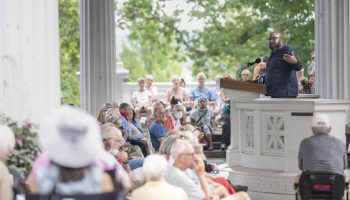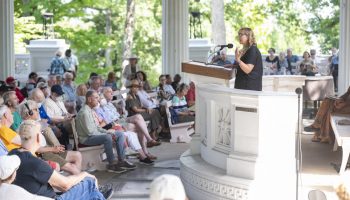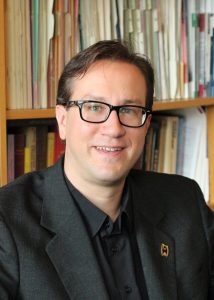 Roy Speckhardt believes human empathy and compassion can direct the arc of history toward a better place.
Roy Speckhardt believes human empathy and compassion can direct the arc of history toward a better place.
“There exists great harm in this world, and people who have bad motivations — they exist,” said Speckhardt, an author and executive director of the American Humanist Association. “We should do what we can to overcome these problems as a world community. We need to address these topics and concerns in ways that can lift everybody up.”
At 2 p.m. today, July 12, in the Hall of Philosophy, Speckhardt will give Chautauqua’s third Interfaith Friday lecture on humanism and the problem of evil. Speckhardt will be in conversation with the Rt. Rev. V. Gene Robinson, vice president of religion and senior pastor.
“I’m coming from a humanist perspective,” Speckhardt said. “We’re not theistic, we don’t have God beliefs. That kind of puts a twist on discussing why a loving God would allow evil in the world.”
Speckhardt said he plans on talking about how people of faith and goodwill can work together to make the world a better place.
“In fact, looking at history, there are bigger reasons for optimism than we’re seeing in current politics,” he said.
Speckhardt was raised Catholic in a suburb of New York City, and said he very quickly began to explore other religions.
“I did quite a bit of exploration into Eastern religions and other types of faiths before I decided humanism would be best for me,” he said. “Humanists get their source of knowledge from scientific processes, which basically leads us to the best of modern knowledge. We go to what our experts say is the best information on a given subject. We don’t look for divine revelation or ancient texts.”
Speckhardt has helped lead recent policy initiatives in the AHA, including a few high-profile lawsuits involving Christian symbols that were placed in public areas.
“We see that a government has installed a Christian cross in a way that we think is inappropriate,” he said. “One of (the cases) that we just lost was in the Supreme Court in Maryland. They decided that this memorial from World War I could continue to stand, in what was a fairly narrow decision.”
According to Speckhardt, it’s the AHA’s position that government “shouldn’t be in the religion business — and putting up a Christian cross is getting in the religion business.”
“When we drive past a town that has a giant Christian cross on the outside, it looks like that town is more welcoming to Christians than people of other faiths,” he said. “And when it’s used as a memorial, that compounds the problem from our perspective because not all veterans are Christian. Putting up a memorial and saying that it represents everyone when it only represents the Christian fallen is just not fair.”
Yet the courts aren’t the only avenue for pursuing the AHA’s agenda, according to Speckhardt.

